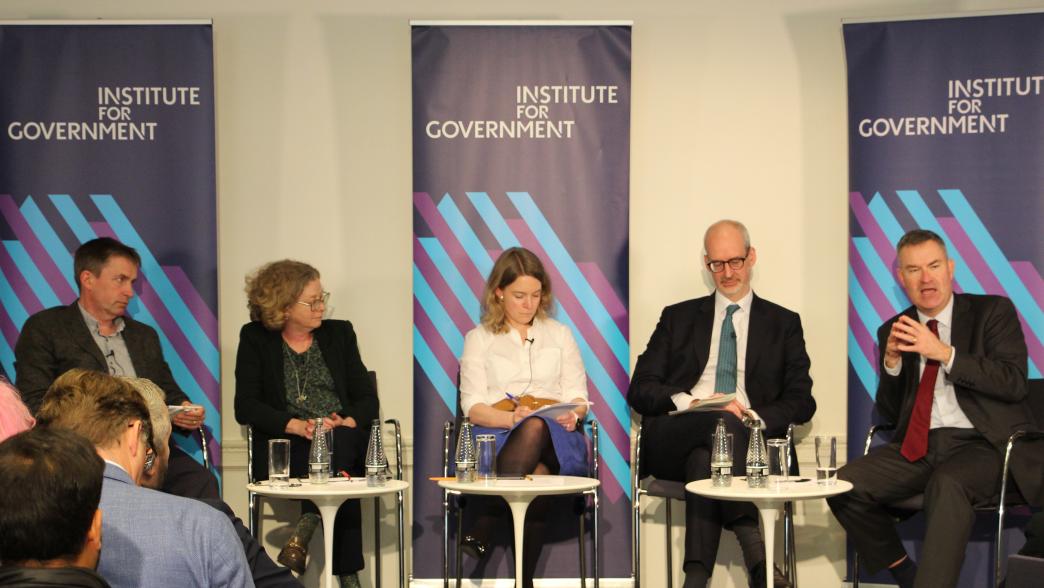Does the Treasury wield too much power over government?
Treasury Permanent Secretary James Bowler joined us to discuss the department's role in government.

Watch the event
Listen to the event
The Treasury is perhaps the most powerful department in Whitehall. Its ownership of public spending means it has direct control over the money available to the rest of government, while the Treasury’s responsibility for tax policy gives it enormous influence over the finances of households and businesses.
But criticism of the department’s influence on government policy is almost as old as the institution itself, with frequent complaints about the “dead hand of the Treasury” or attacks on the department’s “orthodoxy”.
However, a recent IfG report found many of the fiercest criticisms to be overblown: many simply represent a dislike of a budget constraint. The department plays an important function in effectively managing public spending and guarding against financial disorder. It has also consistently been a champion of economic growth, though there is debate about how that is managed against its responsibility for managing government spending. While the department has clear strengths, there are clearly problems with how it functions. The Treasury often takes a short-term approach, is frequently accused of micromanaging other departments, and wields excessive influence over government policy relative to the rest of the centre.
So how can these problems be addressed? How much are they due to the relative weakness of other departments or the incentives facing Treasury ministers? And just what impact does the Treasury have on government policy making?
Our expert panel exploring these issues and more featured:
- James Bowler CB, Permanent Secretary of HM Treasury
- Anita Charlesworth, Director of Research at the Health Foundation and former Director of Public Spending at HM Treasury
- David Gauke, former Chief Secretary to the Treasury, Lord Chancellor and Secretary of State for Work and Pensions
- Giles Wilkes, Senior Fellow at the Institute for Government and co-author of Treasury orthodoxy, and former No 10 special adviser for industrial strategy
The event was chaired by Dr Gemma Tetlow, Chief Economist at the Institute for Government.
Follow us on X (formerly known as Twitter) @IfGEvents and join the conversation using #HMTreasury.
Our experts

Gemma Tetlow
Chief Economist

Giles Wilkes
Senior Fellow
- Topic
- Public finances
- Position
- Chancellor of the exchequer
- Department
- HM Treasury
- Public figures
- Jeremy Hunt
- Publisher
- Institute for Government